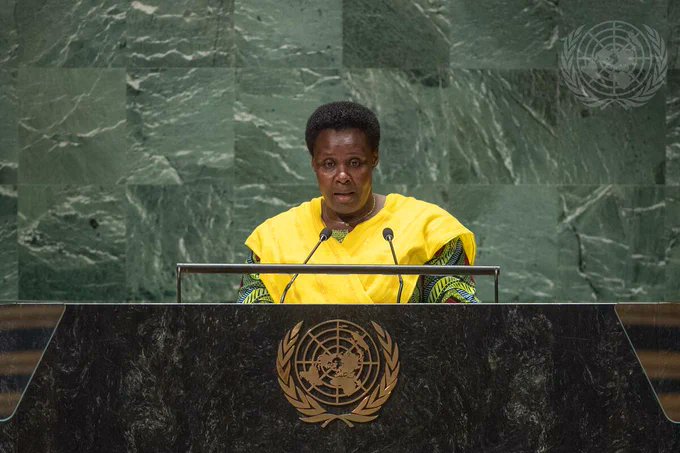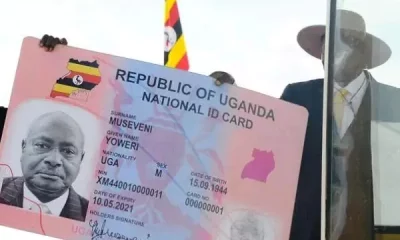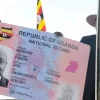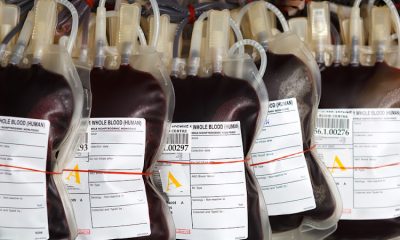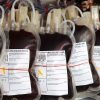Jessica Alupo Emphasizes Multilateralism, UN Reform, and Commitment to 2030 Agenda at UN General Assembly
Addressing the UN General Assembly, Jessica Alupo, the Vice President of Uganda, highlighted the nation’s unwavering commitment to a revitalized United Nations, multilateralism, and the imperative of UN reform. She emphasized Uganda’s dedication to the 2030 Agenda for Sustainable Development, peace, security, and climate action, calling for international support to address global challenges. Alupo also expressed concerns about the impact of COVID-19 on healthcare and economies and reaffirmed Uganda’s role as the incoming Chair of the Non-Aligned Movement (NAM).
In her address, Vice President Alupo emphasized the need for a revitalized United Nations capable of addressing current and emerging global challenges. She underscored the significance of multilateralism as a crucial mechanism for nations to address common challenges together in solidarity. Uganda pledged its commitment to work with all UN member states to make the organization more relevant for contemporary issues.
Alupo reiterated Uganda’s commitment to the reform of the United Nations Security Council, advocating for greater representation and addressing historical injustices against Africa, as outlined in the Common African Position, Ezulwini Consensus, and Sirte Declaration.
Commitment to Sustainable Development Vice President Alupo stressed the critical importance of timely and full implementation of the 2030 Agenda for Sustainable Development and the 17 Sustainable Development Goals (SDGs). Uganda has taken bold actions to accelerate national implementation, including operationalizing Voluntary Local Reviews and hosting an annual national Sustainable Development Goals Conference. The nation continues to make progress in SDG implementation and plans to present its third Voluntary National Review report in July 2024.
Alupo highlighted the interdependence of peace and security with sustainable development, emphasizing the need for cooperation, diplomacy, and peaceful resolutions to conflicts. Uganda actively engages in regional initiatives, including those under the African Union, Intergovernmental Authority on Development (IGAD), East African Community (EAC), and International Conference on the Great Lakes Region (ICGLR), promoting multilateralism to address global insecurity.
Refugee Policy and Human Rights Uganda, as a top refugee-hosting country, expressed gratitude to the UN, member states, and development partners for their support in addressing the refugee crisis. The country is committed to shouldering its responsibilities and obligations in addressing refugee issues through the Comprehensive Refugee Response Framework. Uganda also co-convenes the Global Refugee Forum, encouraging continued commitment to burden and responsibility sharing.
Alupo highlighted Uganda’s respect for cultural and customary values, emphasizing the importance of mutual respect for sovereignty. She called for understanding and engagement with development partners on human rights, acknowledging the cultural diversity of nations.
Gender Equality and Climate Action Uganda has made strides in gender equality, with over 34.9% of parliamentary and executive seats held by women. The nation is promoting economic empowerment for women and youth through various programs, including Uganda Women Entrepreneurship initiatives. The creation of the Africa Continental Free Trade Area (AfCFTA) is expected to enhance women’s participation in cross-border trade.
Climate change remains a pressing issue, with Uganda implementing climate adaptation and mitigation measures. These include expanding access to sustainable energy, increasing forest and wetland cover, and championing climate-smart agriculture. Alupo called on developed countries to fulfill their commitment to provide USD 100 billion annually to support developing countries in climate action.
Uganda is actively addressing biodiversity loss through actions like wetland restoration, reforestation, and prosecution of illegal activities that harm flora and fauna. The nation urged the international community to provide developing countries with sufficient means of implementation, including financing, capacity building, and technological transfer, to combat biodiversity loss.
Alupo emphasized the need for international financial architecture reform to address financing challenges faced by developing countries. She called for substantial reforms to ensure equitable representation in international financial institutions and support for national development efforts.
The Vice President acknowledged the challenges posed by the COVID-19 pandemic, including disruptions in healthcare and economies. Uganda has faced job losses, supply chain disruptions, decreased foreign investments, and increased poverty rates. Alupo called for renewed commitment to healthcare and the Sustainable Development Goals in light of the pandemic, highlighting Uganda’s successful response to the Ebola outbreak as an example of effective disease control measures.
Leadership in Non-Aligned Movement and South-South Cooperation Uganda, as the incoming Chair of the Non-Aligned Movement, pledged to strengthen the Movement’s principles and values within the United Nations. The nation is set to host the 19th NAM Summit in January 2024.
Alupo commended the solidarity exhibited by countries in the global south in supporting each other to address challenges and reaffirmed Uganda’s support for South-South Cooperation and Triangular Cooperation within the United Nations. Uganda will host the Third South Summit in January 2024, welcoming leaders of G77 plus China to discuss global cooperation.
